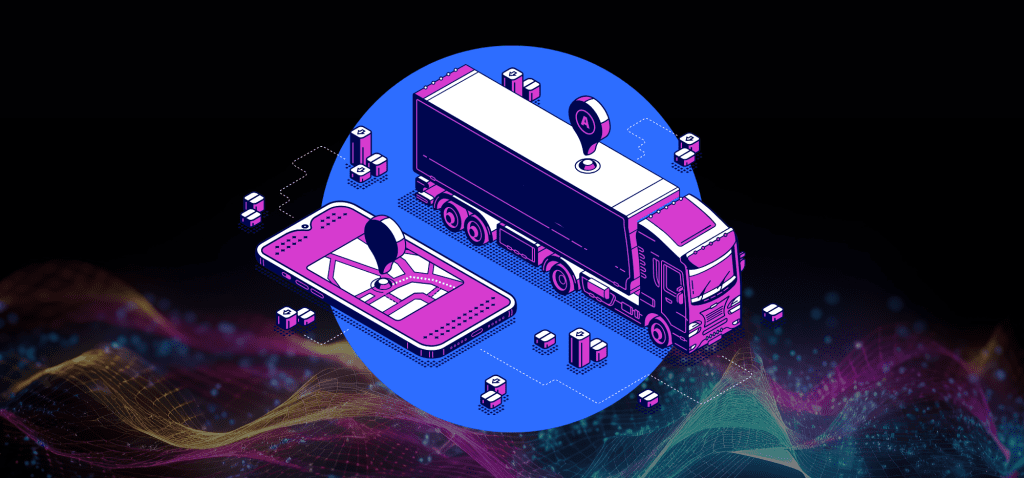IoT and Modern-Day Fleet Management: How the Tech Has Shaped the Industry


The Internet of Things (IoT) has revolutionised fleet management solutions, transforming how businesses approach and monitor fleet vehicles.
By integrating technologies that measure attributes relating to real-time tracking, vehicle data, and advanced data analytics, IoT-based solutions continue to enhance operational efficiency, cut operational costs, and improve driver safety across various industries.
From small logistics companies to large-scale transportation networks, fleet management systems rely on IoT-enabled fleet devices like GPS tracking, telematics trackers, and IoT sensors to monitor key performance metrics. As the digital takeover of the fleet management market continues, IoT devices have proven more diverse than just tools for GPS tracking; they are strategic assets that allow companies to take their operations a step further by improving data transmission, strengthening data security, ensuring reliable connectivity, and enhancing sustainability across their entire ecosystem.
Fleet vehicles worldwide rely on IoT connectivity to function efficiently. This blog will explore their influence on the industry’s progression and highlight the benefits of IoT in shaping modern fleet management solutions.
Environmental Efforts
Environmental initiatives are considered competitive in today’s world. The fleet management market is a massive contributor to carbon emissions worldwide, and IoT fleet management solutions can help reduce these through fuel efficiency strategies.
Tools like route optimisation help limit miles and time spent on the road, and idling tracking helps keep emissions at a minimum. Data-driven insights allow fleet management systems to optimise routes efficiently, cutting down unnecessary fuel consumption and lowering the carbon footprint of fleet vehicles.
Vehicle idling, in particular, emits a substantial 30 million tonnes of CO2 annually, significantly increasing fleet emissions. With the help of IoT-enabled fleet technology, businesses can actively monitor vehicle conditions, engine performance, and minimise unnecessary fuel waste.
Environmental initiatives can help open doors for potential business opportunities, positive press coverage, and government grants. In more ways than not, you’ll find that IoT sensors and data analytics are the driving forces behind many of these benefits.
Automation in Fleet Management
If you’re a fleet management professional, you’ll likely be acquainted with the tedious processes involved in regulatory compliance, like logging and paperwork. Fleet management systems using IoT sensors can help automate these processes, freeing time for more critical tasks. For example, devices can help manage Driver Vehicle Inspection Reports (DVIR), Hours of Service (HOS) logging, and compliance checks without exhaustive administrative efforts.
You can also optimise routes, schedule fleet maintenance, and monitor driving behaviour using GPS tracking and real-time vehicle data. These tasks often require some intervention, but with the advent of AI in the industry, many previously manual tasks are becoming increasingly autonomous.
Predictive and Preventative Maintenance
Fleet maintenance is a must in fleet management solutions. What many operators fail to capitalise on is the fact that they can use automation to help them.
IoT sensors can monitor diagnostics based on acceptability thresholds; your fleet management systems will send notifications automatically when your vehicle performance dips below that threshold. IoT fleet management solutions provide an additional layer of efficiency to this process, which helps to minimise breakdowns, reduce inefficiencies, and maximise fuel efficiency. Integrated devices help collect data on diagnostics like hydraulics, tyre pressure, and engine performance, providing continuous monitoring and regular updates.
By leveraging IoT-based technologies, businesses can improve operational efficiency, reduce downtime, and lower fuel costs by ensuring vehicles are always in top condition.
The Developing Future of IoT in Fleet Management
IoT fleet management solutions have existed in the fleet management market for quite some time. With technology advancing rapidly across all sectors, it begs the question: what’s next for fleet management?
AI and Machine Learning
Artificial Intelligence (AI) adds a layer of autonomy and sophistication to fleet management systems. Together, they are known as AIoT (Artificial Intelligence of Things), covering many tasks.
AIoT efforts enable fleet managers to anticipate fleet maintenance needs, optimise routes, and make better route planning decisions. These advancements result in increased driver safety, reduced fuel consumption, and improved vehicle performance.
AI also enhances data analytics, allowing businesses to process massive amounts of data in real-time, leading to smarter fleet management decision-making.
Edge Computing
Edge computing plays a critical role in the future of fleet management solutions. It refers to processing vehicle data closer to the source rather than a data centre or centralised cloud. By processing data closer to fleet vehicles, edge computing reduces latency by decreasing reliance on external infrastructures.
This technology enables faster data transmission, improving response times for essential functions like predictive maintenance, route planning, and collision avoidance. These are crucial to all fleet vehicles, especially HGVs, which have limited route options due to their size and weight.
5G Connectivity and Wi-Fi Integration
While 5G is still emerging, it’s poised to become a future cornerstone of IoT fleet management solutions. Its high-speed capabilities, low latency, and increased capacity have proven transformative in its ability to transfer real-time tracking and vehicle location data between fleet vehicles, data centres, and cloud setups.
The integration of Wi-Fi technology in fleet management solutions will further improve reliable connectivity, ensuring seamless data-driven fleet operations, even in remote locations.
As 5G and Wi-Fi technology continue to evolve, they will facilitate more applications, such as autonomous driving, augmented reality, and remote diagnostics. These capabilities cover driving behaviour monitoring, vehicle conditions, and predictive maintenance. Its reliability and nationwide expansion will soon support more IoT sensors and applications.
How Iotie Can Help
At Iotie, we provide fleet management solutions compatible with networks across over 150 countries, all from a single SIM card. We provide the reliable connectivity necessary for all IoT fleet management solutions in fleet management and other industries.
By harnessing the power of IoT sensors, trackers, and data-driven analytics, we enable you to leverage cost savings, efficiency, and sustainability. Contact us today to see how we can help facilitate your fleet management systems and support your business in reducing fuel consumption, minimising disruptions, and improving driver safety.


